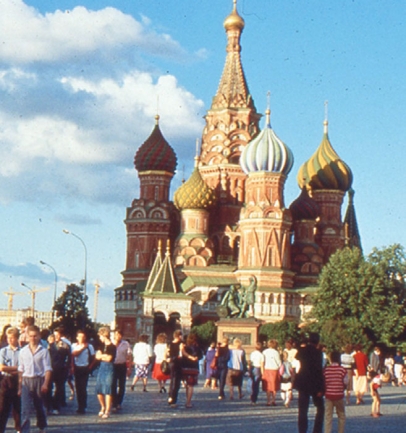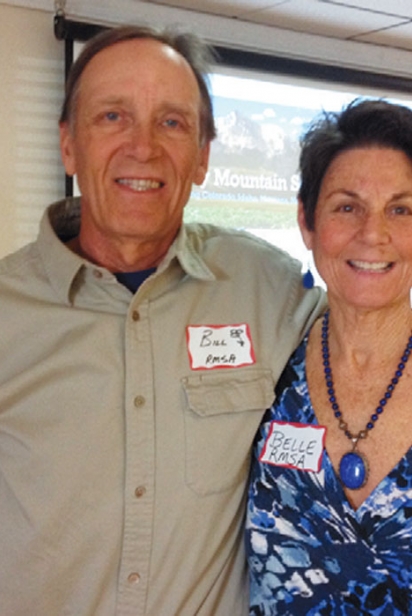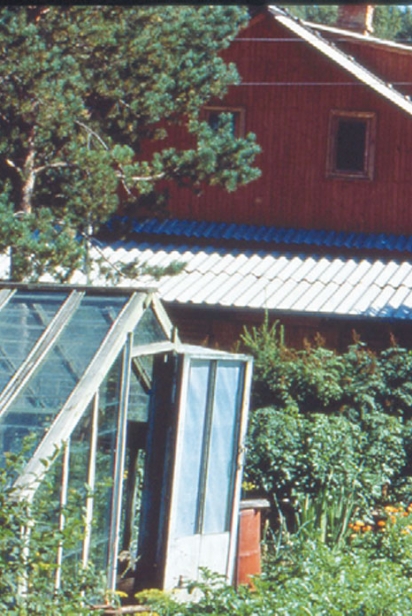Sowing the Future
Bill McDorman is a world-renowned seedsman and one of my personal seed-saving mentors. I was excited to interview him as he returned to Idaho to found the Rocky Mountain Seed Alliance after serving as the executive director of Native Seeds/SEARCH in Arizona.
McDorman is a native Idahoan who has run several successful seed companies, including High Altitude Gardens/Seeds Trust, which was based in Ketchum. He has traveled the world in search of seeds that will thrive in Idaho’s mountain climates. We sat down “together” via Skype for this interview.
CASEY O’LEARY: It is the 25th anniversary of your trip to Siberia. You were one of the first Westerners to go behind the Iron Curtain looking for seeds. What stays with you today?
BILL McDORMAN: It changed my worldview fundamentally. In some ways my whole seed career after that has been trying to get everybody to be like the people I met in Siberia, where everybody gardened and saved seeds, even in big modern cities. That’s an easy way of explaining my whole mission—I saw it. It’s real. If you make seed saving itself into a sacred ritual again, obviously you get better food and you get more control and you can discover all the magic. But it also informs who you are and how you act in the world.
Through your new organization, the Rocky Mountain Seed Alliance, you’re trying to mobilize our bioregion into seed production. Why should Idahoans care about seeds?
Wow. Because they eat. And most of what they’re getting comes from a centralized industrial system that has and continues to destroy the plant genetic diversity that makes that system sustainable.
If anyone has a long-term interest in living in Idaho and wants to do that with any level of comfort and wealth, then they should be interested in this. Also because of the economics. Idaho is one of the great seed-producing regions of the world. This is our Bordeaux. This is our Stilton cheese. But now, the majority of the seeds used by the farmers and gardeners in Idaho come from outside Idaho. From way outside!
As a small seed producer, I sometimes feel like my scale is too small to be truly useful. What advice do you have for us? What is our role?
Well, it’s the most important role! If you want to make money, get big. But when you do that, you lose the real system that helps us create and keep biodiversity. The smaller you get, the more sustainable you are, the more resilient, and the more biodiversity you can get. There’s got to be a mid-level sweet spot of sustainable seed production that brings in enough money but still takes care of the seeds.
People can buy seeds so cheaply. But there are costs that are externalized. If people knew what the real costs of industrially produced seeds were, they’d be more interested in buying local seeds.
What are some of those real costs?
What Don Tipping would say is that when you buy $8 per pound lettuce seed from Seeds by Design, nobody is walking those fields and looking at them anymore. The landrace itself is drifting. That’s a cost. When you buy your seeds, you are buying a whole agricultural system. So you can buy seeds really cheaply, but what is the cost of doing that? The costs are you don’t get things that are adapted to where you are, you’re subsidizing the industrial system that’s poisonous and unsustainable, you’re probably abusing farmworkers, you’re destroying whatever’s left of the family farm movement because most of the seeds are grown on large industrial scale and moved to China or overseas because the cost of production is cheaper.
You say the loss of agrobiodiversity is an important cost. Can you share a concrete example of that?
What does modern agriculture do when a disease hits your large-scale industrial crop? You go into collections with many types of the crop and plant them out into diseased fields and see if any of them survive, and then cross those genes back into industrial varieties. That’s what’s going on with sugar beets right now in southern Idaho. They’ve got a couple of diseases knocking on the door, so they’re racing through all the old varieties, even wild varieties to try to find a gene that is resistant.
When you bring up seeds in conversation, many times people jump immediately to the evils of Monsanto. Is that true? Are large biotech companies the major threat to our seeds?
No, I’ve always seen this as just a symptom of the disease. The disease is just such large-scale industrial ag. I don’t want to undercut the fact that they may do (or may have already done) irreparable damage to the biosphere. It’s a horror story. But that’s not the problem. You’re not going to defeat the world’s largest corporations. What we do need is our own alternative agriculture that makes them irrelevant. We could do it as citizens in a relatively short period of time if we were educated and we stopped supporting the products of their corporate work. We get to vote with every dollar. Every time you put a bite of food in your mouth you are voting. You have tremendous power.
Do you have anything else you’d like to say to the Edible Idaho readership?
Well, I’d say thank you—to everybody who looks out for local food. When we got started doing this, that wasn’t there. I gave the first keynote address at the first sustainable ag conference we had in southern Idaho. I said, ‘You know, as much as we dream of a new world, it’s not going to work until we have enough people in southern Idaho buying enough local food to warrant us doing this.’ That was more than 25 years ago, and guess what? There’s an Edible Idaho now! So the next stage is to connect it to the seeds. That’s where your real power is. And that’s what we’re here to do.
For a transcript of the entire interview, please visit EdibleIdaho.com.
Visit RockyMountainSeeds.org for more information about McDorman’s latest project.






